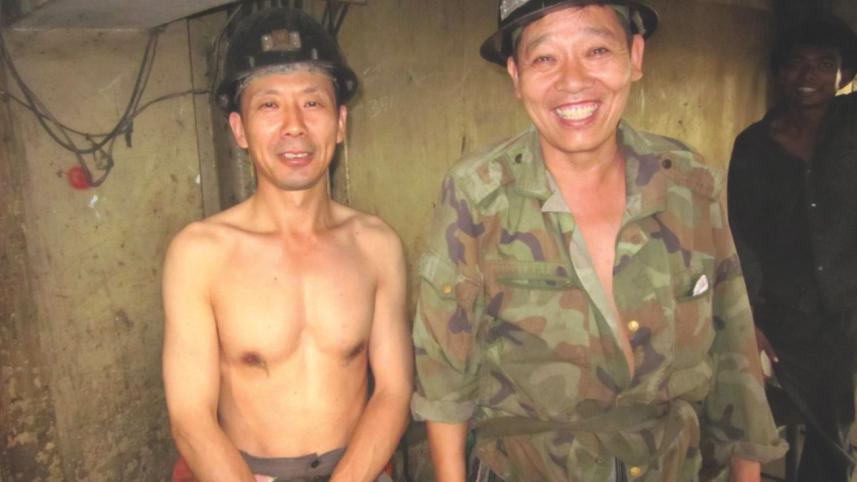The Chinese miners of Barapukuria

Dhaka, Khulna, Rangpur and Barisal: Mr Zhang likes to travel. "Bangladesh is poor," he says, interpreted from Mandarin, "but people are very honest, especially in northern villages."
As a Buddhist, Mr. Zhang believes in reincarnation. According to him, everything in this life is the outcome of a previous life. Something in his previous life brought him to Bangladesh this time around.
The office buildings at his workplace are white tiled on the outer walls, with blue tiled angular eaves to break the monotony of a flat roof. The drivewayis circular. It could be any random factory office in industrial China except it isn't. Mr. Zhang works as an engineer at Barapukuria Coal Mine in Dinajpur'sParbatipur. He has done for a decade.
"I mostly speak to local colleagues in English," he says, "but with the help of books and audio material I also learnt some Bangla. In Bangla it's interesting how when people introduce how many siblings they have they include themselves in the number."
Barapukuria is run by Chinese contractors. Along with more than 1000 locals, the mine employs over 300 Chinese. Signs commonly feature Mandarin and the canteen serves Chinese cuisine. There's even a mosque built for local workers in ubiquitous Chinese tiled style.
"At the core," says Mr. Zhang, "all religions are the same."
From the surface, the first level of the mine is 293 metres down, sitting at 260 metres below sea level. From there, 1.5 kilometres of roadway and train track tunnels slope to a final depth of 430 metres below sea level. Miners work a six-hour shift.
Local miner Kabirul Islam, 33, says that to cooperate with Chinese colleagues he has learnt to understand some Mandarin. "Kem cha means train," he says.The Mandarin word for train is actually 'hǔochē' but in a tunnel with the sounds of a coal mine going on and a train quite possibly approaching at the time of use, 'kem cha' undoubtedly suffices.
Like Mr. Zhang and most Chinese miners, Mr. Li, locally called 'Om,' is from the city of Suzhou in Jiangsu Province. For five years he's worked at Barapukuria and in very basic Bangla and English he praises the skill of some of the managers.
But he misses his native food. "Some of the Chinese food here is good," he says, "but the variety is limited." To supplement, miners grow Chinese vegetables on land beside their quarters. As can be expected, Mr. Li misses his one-year-old daughter who he sees only on home visits every six months.
Life at Barapukuria is strenuous and not without risk. Yet despite the hardships Bangladeshi and Chinese miners cooperate in bringing the underground wealth of Bangladesh to the surface.
"External forces are not issues," says Mr. Zhang. "What matters is internal attitude, which can turn any challenge into an opportunity and bring good fortune. Good deeds make for happy endings."
With thanks to Ms. Olivia Qu for interpreting from Mandarin.




 For all latest news, follow The Daily Star's Google News channel.
For all latest news, follow The Daily Star's Google News channel.
Comments